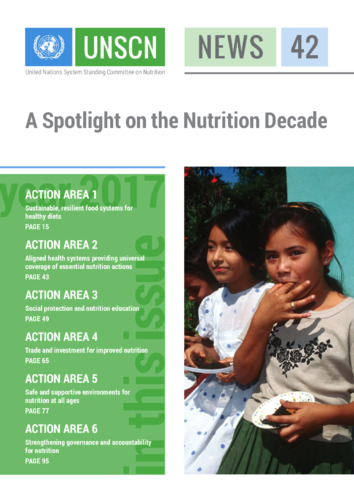Leveraging agrobiodiversity to create sustainable food systems for healthier diets
The current ways that planetary resources are used to produce and consume food are raising significant concerns about the impact on nutrition, health and sustainability. A major reorientation of our food systems is needed in terms of both activities and governance. This paper describes the important contributions agricultural biodiversity makes achieving healthy diets and sustainable food systems and highlights a number of key actions needed to maximize those contributions.
Dietary factors are the number one risk factor in the global burden of disease. At the same time, many of the ways in which food systems operate, from production to sales and consumption, are causing significant environmental damage, including loss of biodiversity and of the beneficial services that biodiversity in ecosystems provides to humanity.
This paper argues that focusing on increasing agricultural biodiversity in landscapes, food systems and diets is an important part of the solution to creating healthier diets from sustainable food systems. For instance, a healthy diet should be based on whole grains, fruit, vegetables, legumes, nuts and seeds, and be limited in added sugar and sodium. Agrobiodiversity can ensure these essential ingredients are present in our food system, and so support healthy diets. In terms of increased sustainability of food systems, agricultural biodiversity can boost yields, provide pollination services and pest and disease control, reduce the need for inorganic fertilizers and synthetic pesticides, and provide protection to natural habitats. Agrobiodiversity can also contribute to breeding of crops and animals that are more capable of coping with climate change. Good governance is key to achieving positive outcomes from promotion of agrobiodiversity. Food systems arise from complex agronomic, economic, political, institutional and social interrelationships. Good governance must drive the enabling environment that influences multiple actors operating in these systems and the actions they can take that will impact on the sustainability of food systems and the creation of healthy diets. Promoting agricultural biodiversity can be a practical investment for healthier diets through four main avenues: local and more nutritious value chains; public or institutional procurement; increased availability of fruits and vegetables; and appropriate policy incentives and coherence for diversification of production and consumption. We use examples from a number of contexts to illustrate potential actions that other countries may follow.

